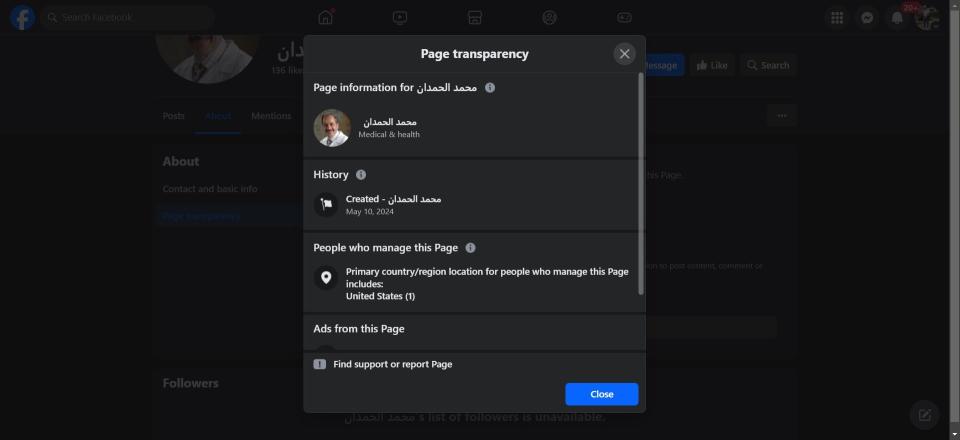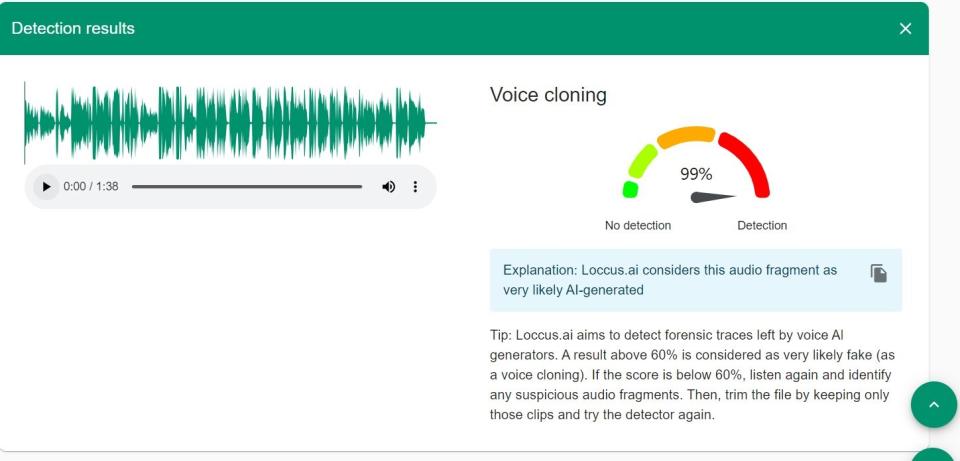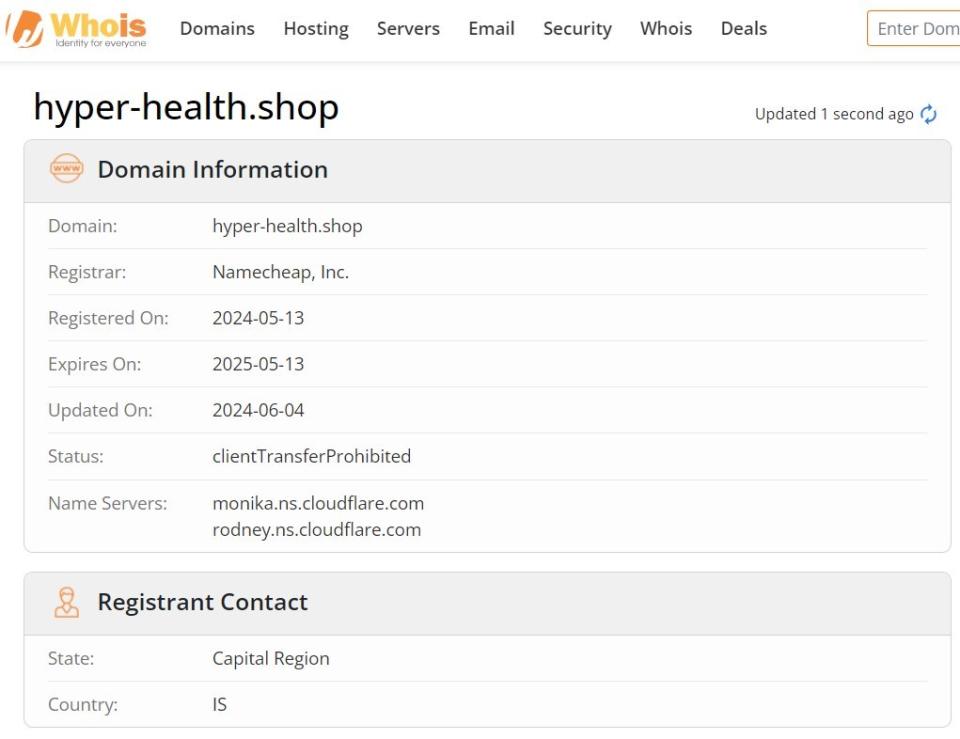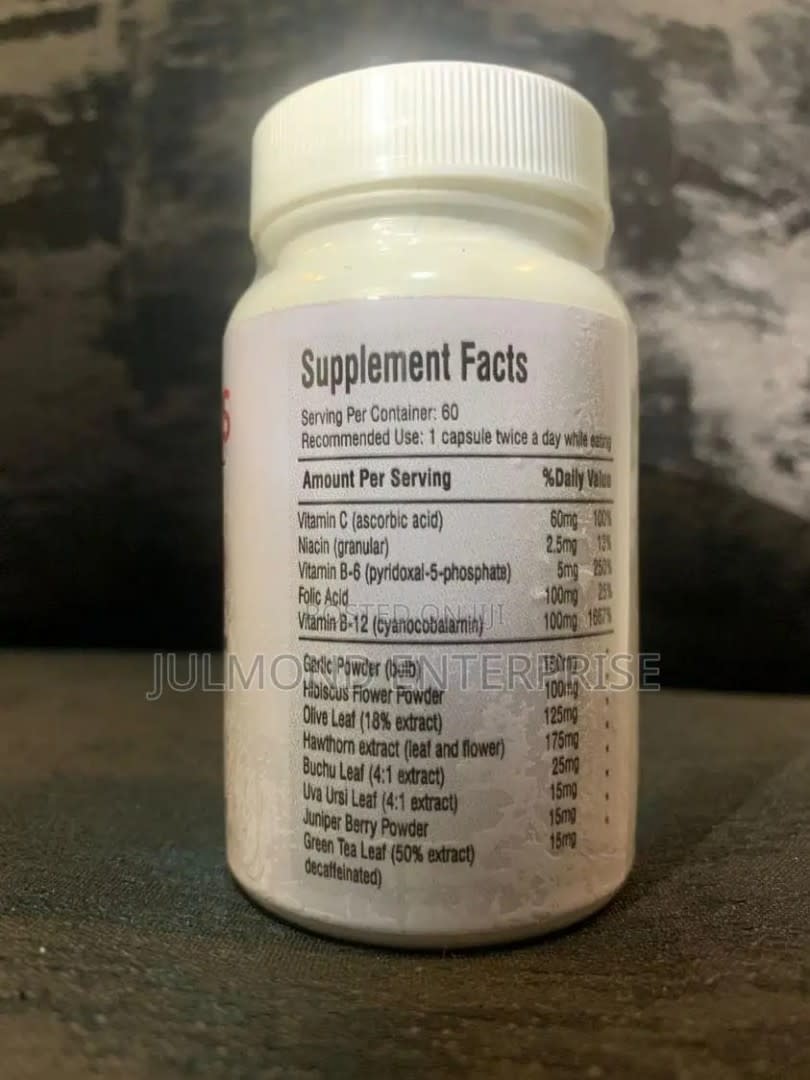AI video falsely claims to show US-based Nigerian scientist advertising heart disease remedy
Artificial intelligence (AI) programmes are increasingly being used to generate misleading videos featuring public figures who appear to endorse “miracle” cures for medical ailments. One post claims to show a US-based Nigerian scientist renouncing Western methods of treating heart disease in favour of natural remedies. However, AFP Fact Check found the clip was created using AI to sell a herbal product, which experts say has none of the mentioned benefits.
“You feel headache and fatigue. Numbness of the limbs or ringing in the ears. This may be caused by hardening of the arteries in the brain, which is a sign of a stroke! Urgently treat brain vessels!”, reads a post published on Facebook on May 28, 2024.

The post includes a video of a man identified as “Dr Samuel Akilefu” purportedly being interviewed about heart disease by an anchorwoman from a Nigerian news channel.
She appears to ask him about the treatment of heart disease and the effects of modern medicines as a cure.

The interviewee responds that “deception is a common practice” in the pharmaceutical industry and says the only cure is an unnamed “natural remedy” made from a “unique natural complex based on living plant molecules”.
He appears to add that the product “cleans the blood vessels and stabilises the blood pressure for many years”.
“There is no need to take it continuously. In just seven weeks, it completely revitalises the vascular network and the blood pressure will stay at 120-80 for the next five years,” he says.

A strapline in the video reads: “Pharmacies are hiding this drug! We can’t keep quiet anymore!”
The post, published by a page called “Mohammad Al-Hamdan” in Arabic, has been shared more than 200 times.
With 2,700 followers, the transparency record of the page reveals it was created on May 10, 2024, and is currently being managed from the United States.

However, AFP Fact Check found that the video was created with an AI program.
Denial
Using the InVID-WeVerify tool, AFP Fact Check extracted keyframes from the video and conducted reverse image searches.
This revealed that the opening segment of the clip was taken from a video uploaded to YouTube by AFP in 2021, showing how ambulances rushed survivors to hospital after they were pulled out of the rubble of a Lagos high-rise building that collapsed during construction (archived here).
AFP Fact Check was unable to find original footage of the news presenter and the alleged interview with Akilefu.
But multiple keyword searches revealed that the man in the clip is Nigerian-born US-based professor Samuel Achilefu who has pioneered both fundamental and applied research in science, engineering, and medicine (archived here).
He is also the chair of the department of biomedical engineering at the University of Texas Southwestern Medical Center.

When contacted, Achilefu denied ever granting such an interview or advertising a heart-disease drug. He told AFP Fact Check he had made a complaint about the video to the Federal Bureau of Investigation (FBI).
“I have been asking everyone to spread the word and have reported it to the FBI,” Achilefu wrote in an email.
The FBI told AFP Fact Check it did not comment on “complaints or tips” received from the public.
AI clues
Throughout the video, the facial features of both Achilefu and the woman interviewer appear grossly distorted, a telling sign of AI manipulation.
Furthermore, the studio background is similar to that of the breakfast show on Nigerian channel TVC News.
TVC's assignment editor James Asuquo told AFP Fact Check that the clip indeed featured the background of their daily breakfast show but confirmed the video was fake.
“TVC News did not conduct the interview, neither did it broadcast it on any of its platforms. There general public is by this information warned of the activities of fraudsters,” he wrote in a message.
Further checks also revealed the interviewer in the video shared a resemblance to Kemi fola-Adeyemo, TVC’s legal reporter.

We extracted the audio from the video and ran it through Loccus.ai — an audio tool that looks for specific forensic traces left by voice generators.
The result showed a 99% probability the audio was generated with an AI tool.

AFP Fact Check has created this useful guide with tips to identify AI-generated content.
Heart disease drug
Embedded in the post is a link for a website advertising “Cordis” — shown as a small white pill bottle labelled with a red heart.

The information on the website says Cordis “normalizes the blood pressure just after a course treatment” and “protects the heart from attacks as well as other cardiovascular diseases”.
The product was advertised for a discounted price of 44,990 naira (30.2 USD).
AFP Fact Check looked up the domain of the website: it was registered on May 13, 2024 — three days before its Facebook page was created (archived here).

A search for Cordis uncovered other websites offering the same product at a discount in Nigeria (see here, here and here).
One site included pictures of labels with a list of ingredients and details for an Indonesian-based company PT SJA Global Cosmindo.

AFP Fact Check’s bureau in Indonesia contacted the company through its customer service line available on Instagram.
During the call, the company denied ever making Cordis — adding that PT SJA Global Cosmindo only produces cosmetics products.
“We are producing cosmetics, not a pharmaceutical company. We really want to know who produces this product. This was a fake product using our company’s name. If something happens, we aren't responsible for it,” the company said.
Presented with a list of the ingredients, Martha Gulati, director of preventive cardiology at the Smidt Heart Institute at Cedars-Sinai Medical Center in Los Angeles, refuted the purported healing powers.
Asked if the formulation can “revitalise the vascular network and keep the blood pressure at 120 -80 for the next five years”, Gulati said: “No.”

 Yahoo News
Yahoo News 
